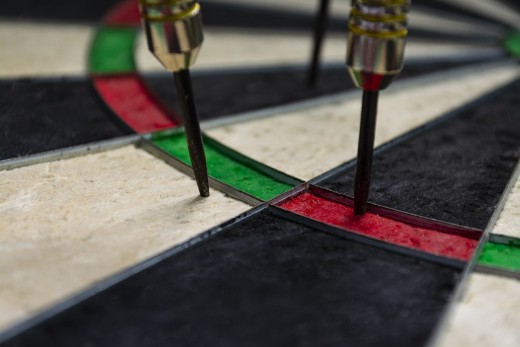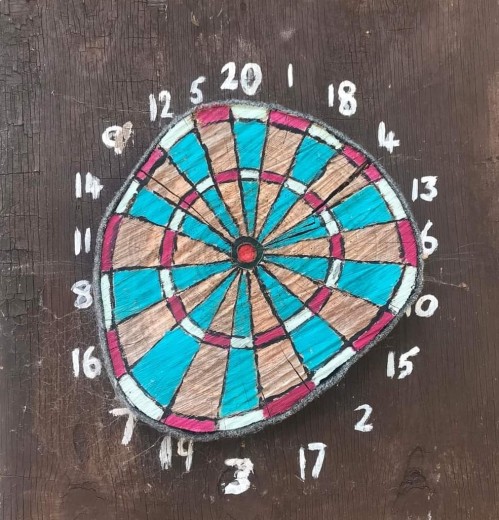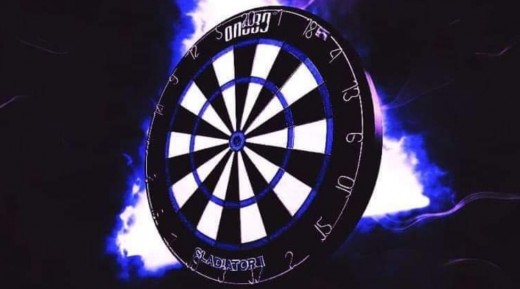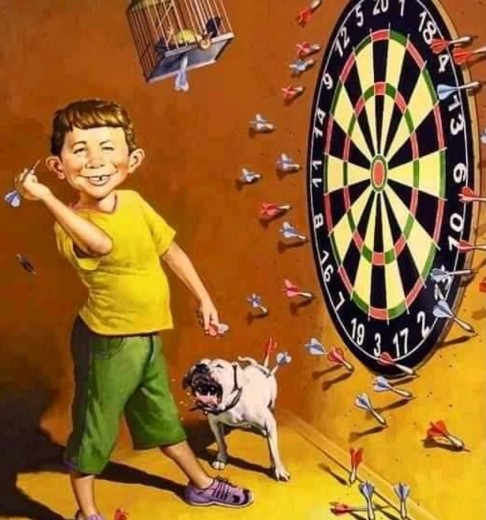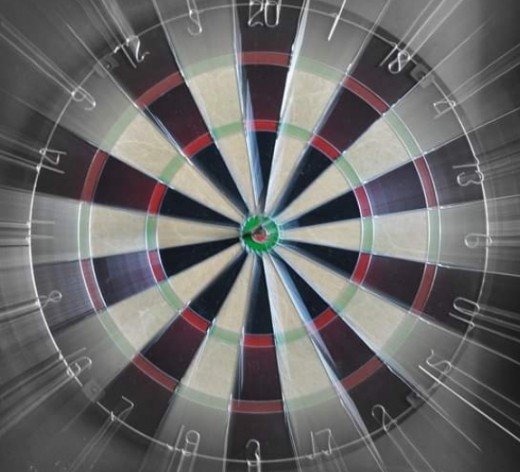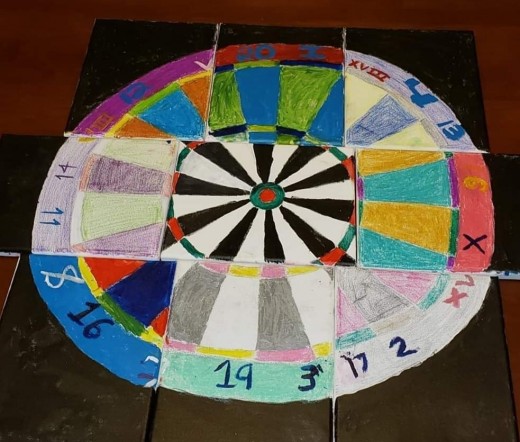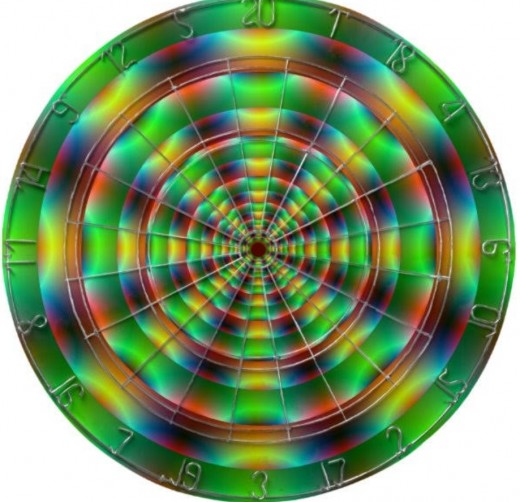Monday, July 29, 2019
Column CM63
Not beach weather…
The first day of the World Matchplay started mostly wet – the day before it had rained cats and dogs.
When I looked out of the window during breakfast, I saw mainly stretched umbrellas. So I was appropriately equipped when I ventured to go outside. But I was lucky – the rain had stopped for the day.
The reason for the umbrellas was probably the very strong wind which churned up the Irish Sea. On the promenade not surprisingly, there were only a few pedestrians or cyclists. The waves often pounded over the balustrade of the promenade and some of the few cyclists got an involuntary cold shower.
In town quite a lot of people could be found. Besides the usual families on holiday there was an astonishing number of groups of young men. Might be darts fans?
All in all Blackpool today is far less a magnet for tourism than it has been. Blackpool is the epitome of a British seaside resort and was one of the first in England.
The notion of the seaside resort – to pass a holiday at sea – is an English one. Initially the health aspect had been in the forefront of thinking. The seawater and the fresh air was believed to help the health similar to the popular spas, for example in Bath.
Over time it developed into the fancied and traditional family holiday at sea. The idea of an entertainment program was already present in Bath and just naturally became included in the family seacoast holiday.
That the PDC decided to offer the World Matchplay as part of the entertainment program in such a traditional seaside resort as Blackpool was only consequential. And this year the very first evening of the event provided entertainment on a high level.
The World Matchplay didn’t start with a strong performance by Nathan Aspinall as I (and probably a lot of other darts fans) expected. Aspinall played well but always trailed while Mervyn King was the player in the front seat. He hit almost everything – the 180s, his doubles. Aspinall looked quite annoyed with himself and couldn’t leave the stage fast enough for the first break.
After the break it changed, and it was King who trailed and Aspinall who was always one step ahead and he scored much better. It might be he had settled into his rhythm or King was just not as strong any longer. Aspinall managed to level at 5 and disappeared into the second break.
After the second break the match reverted back to the way it was before the first break. King was back and again got the lead. He was clinical on his doubles and Aspinall couldn’t grab the few chances he had. In the end Mervyn King won 10-5 as Aspinall was unable to win a single leg after the second break.
With the walk-on of Gerwyn Price the booing started. It calmed some during the match itself but the cheerful crowd favoured Stephen Bunting throughout. The match was not as high-class as the first match of the night. It might be that was the reason it was not really gripping at first. Or it might be the reason was Stephen Bunting’s double-trouble. Until the second break he hit just four of his possible 19 doubles.
After the second break the match changed. Bunting was more clinical on his doubles which delighted the crowd and Price was booed more in the hope this might help Bunting. Price didn’t look affected, though he shook his head.
Suddenly the score line was 8-8 and now we had a thrilling and on both sides rather emotional match. Price reacted with a 180 but he was no longer able to dominate and the match went into the tie break.
Bunting for the first time got the lead and had the first chance to win the match. But he had six points left and missed three match darts on the double three. Price was back in and a sudden death leg was necessary. It looked now that Price had run out of steam while Bunting still was very determined. And so to the delight of the crowd in the end the winner was Stephen Bunting.
Then the venue got blue and even louder – reigning champion Gary Anderson came on stage.
Until the first break neither of the players showed a good performance. It was rather scratchy from both and especially so from Danny Noppert. Anderson went into the first break with a 4-1 advantage.
After the first break it got a little bit better though Anderson still was far from outstanding. Noppert managed to win two more legs but his situation was not much better after that. Anderson threw a 111 finish – one of the few highlights of the match – and went with a 7-3 lead into the second break.
After the break Anderson had left his focus and his joy of playing behind the stage and Noppert managed, despite the cheers of the crowd for his opponent, to get closer. It became tighter for the reigning champion! But the Scotsman battled and even managed to conjure a brilliant 160 finish out of the hat – and Noppert looked like he had finally given in. So, Anderson won 10-6. I am sure he knew he would have to improve.
To end the first World Matchplay day Rob Cross played against Chris Dobey. Dobey seemed to be very nervous and very impressed by his surroundings while it looked his opponent enjoyed himself from the start. It was quite astonishing how serene Cross seemed to be compared to Dobey who is exactly the same age. Cross dominated and we watched a very one-sided match, the first one, as Dobey just couldn’t keep up. In the end Cross won, almost nonchalantly, 10-3.
So, none of the debutants of the first day survived the first round and with Gerwyn Price and Nathan Aspinall the first seeded players had been eliminated as well.
On my way home I stumbled upon Rob Cross who waited for his taxi. I passed two still crowded fish and chips take-aways. The seagulls were still around as well – they don’t ever seem to sleep.
And the Blackpool Tower twinkled colourful in a now dry sky.


